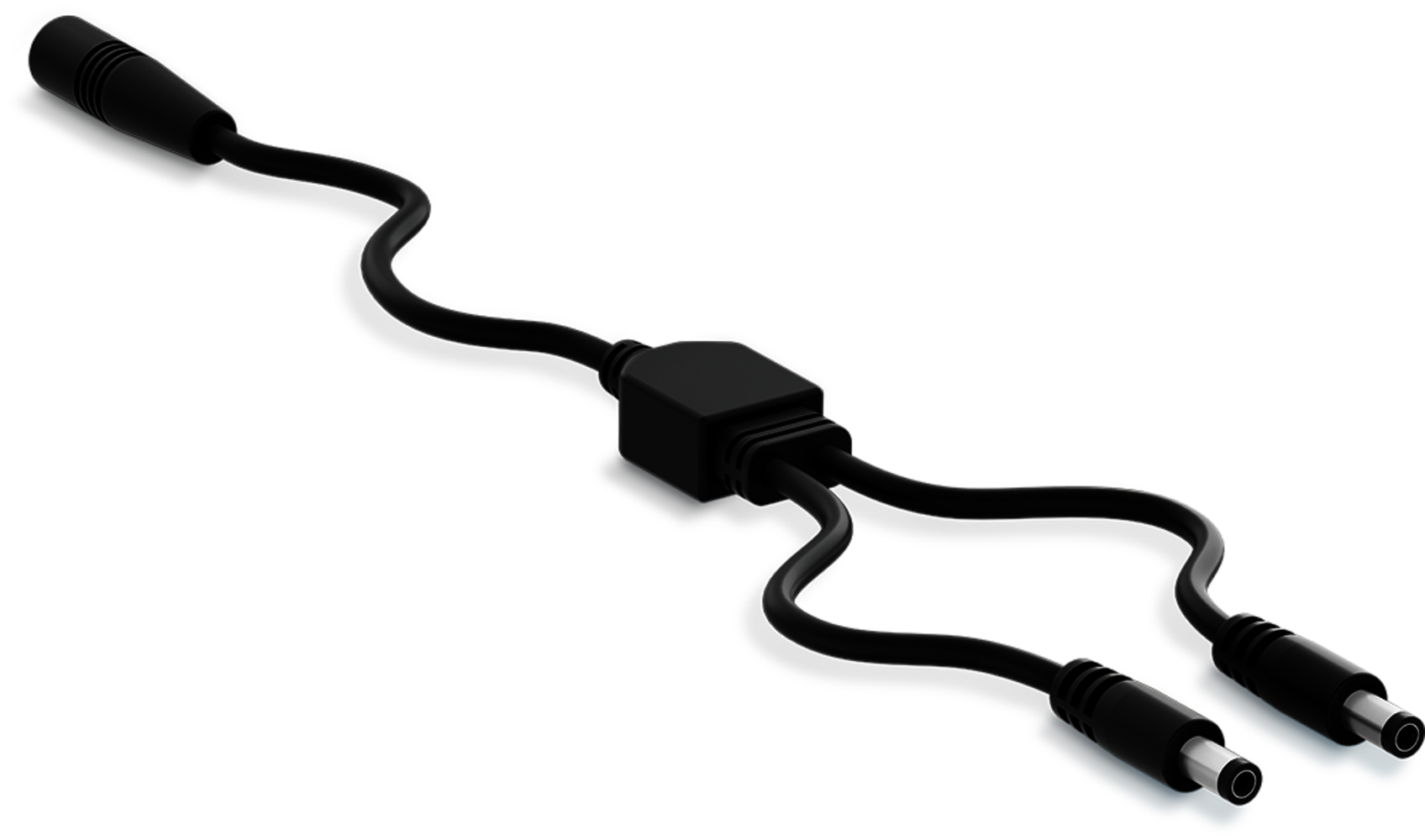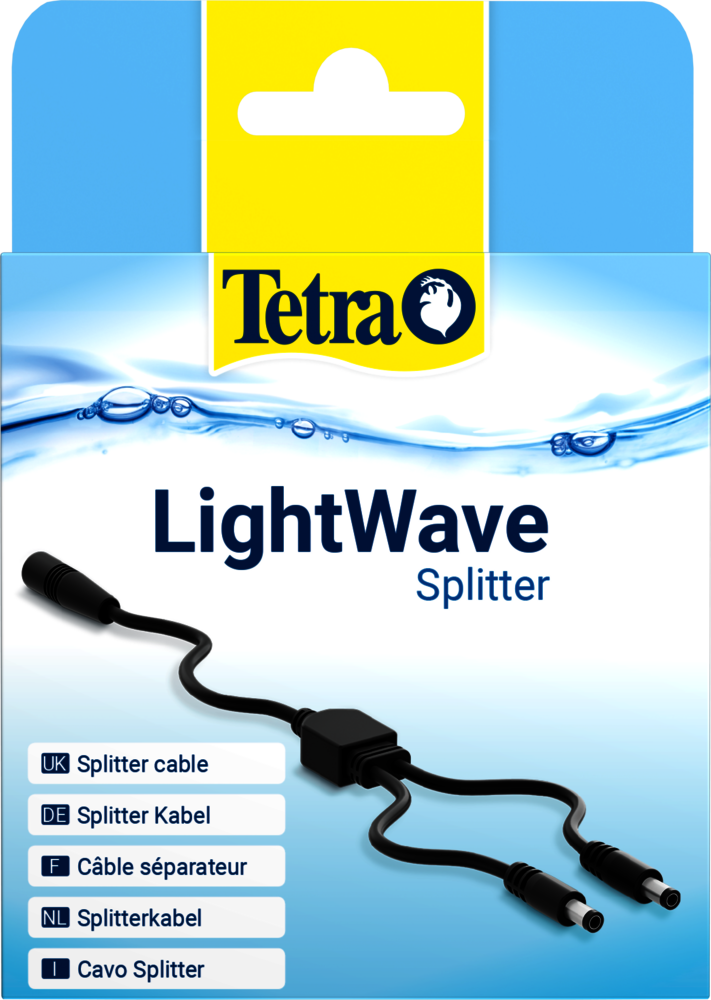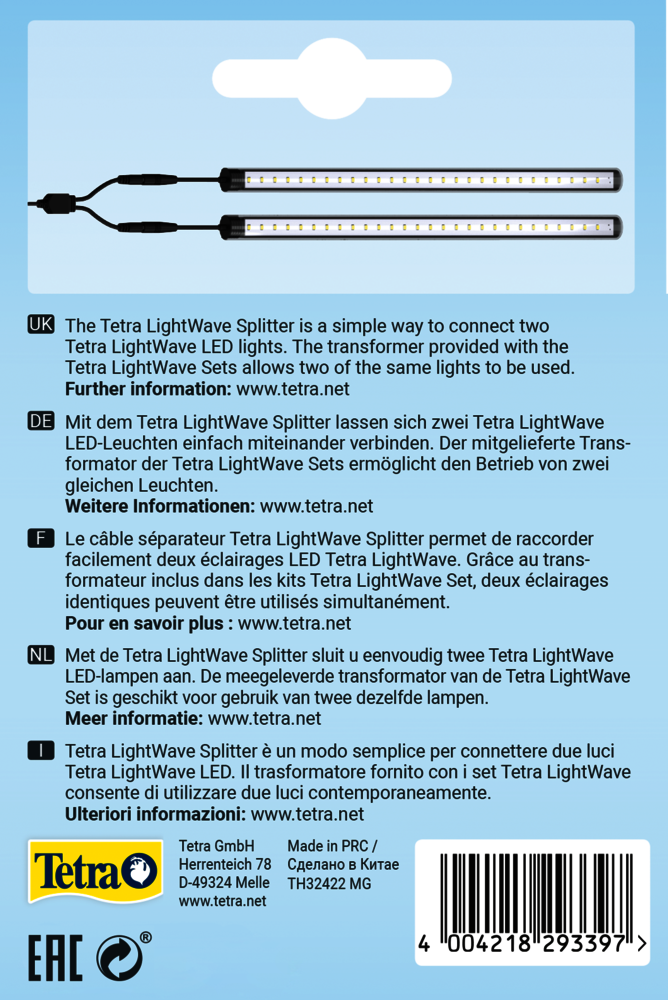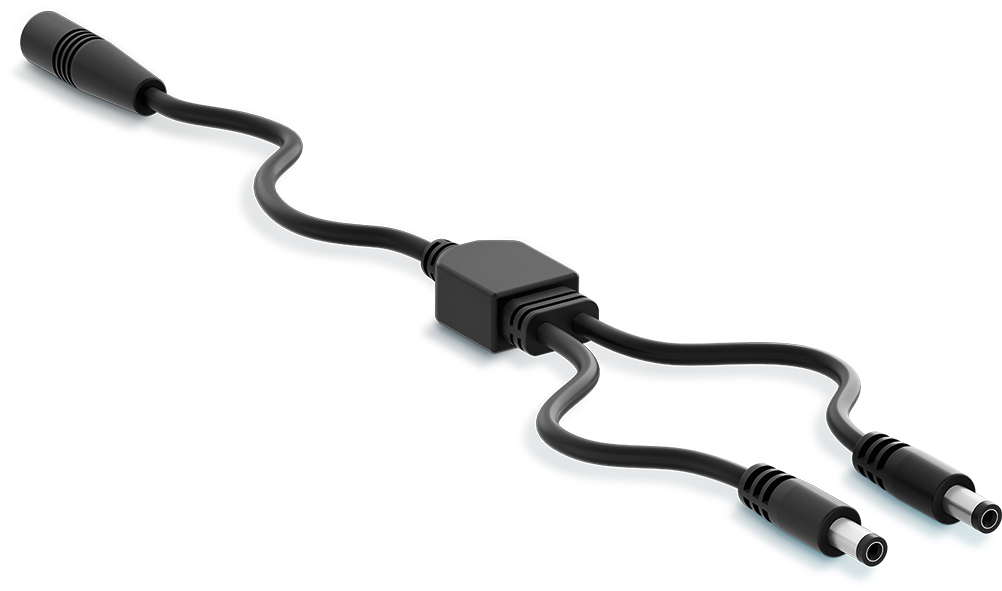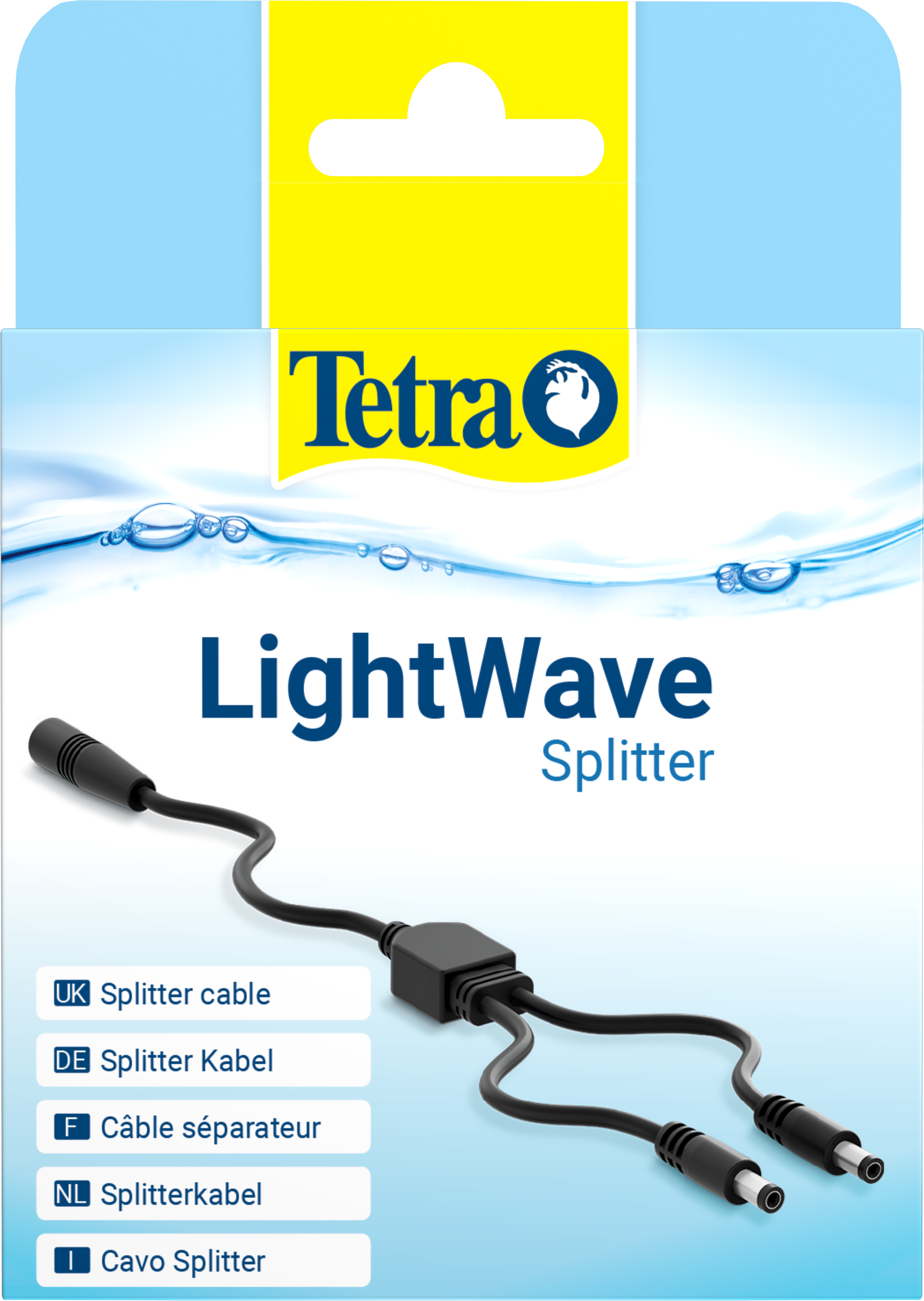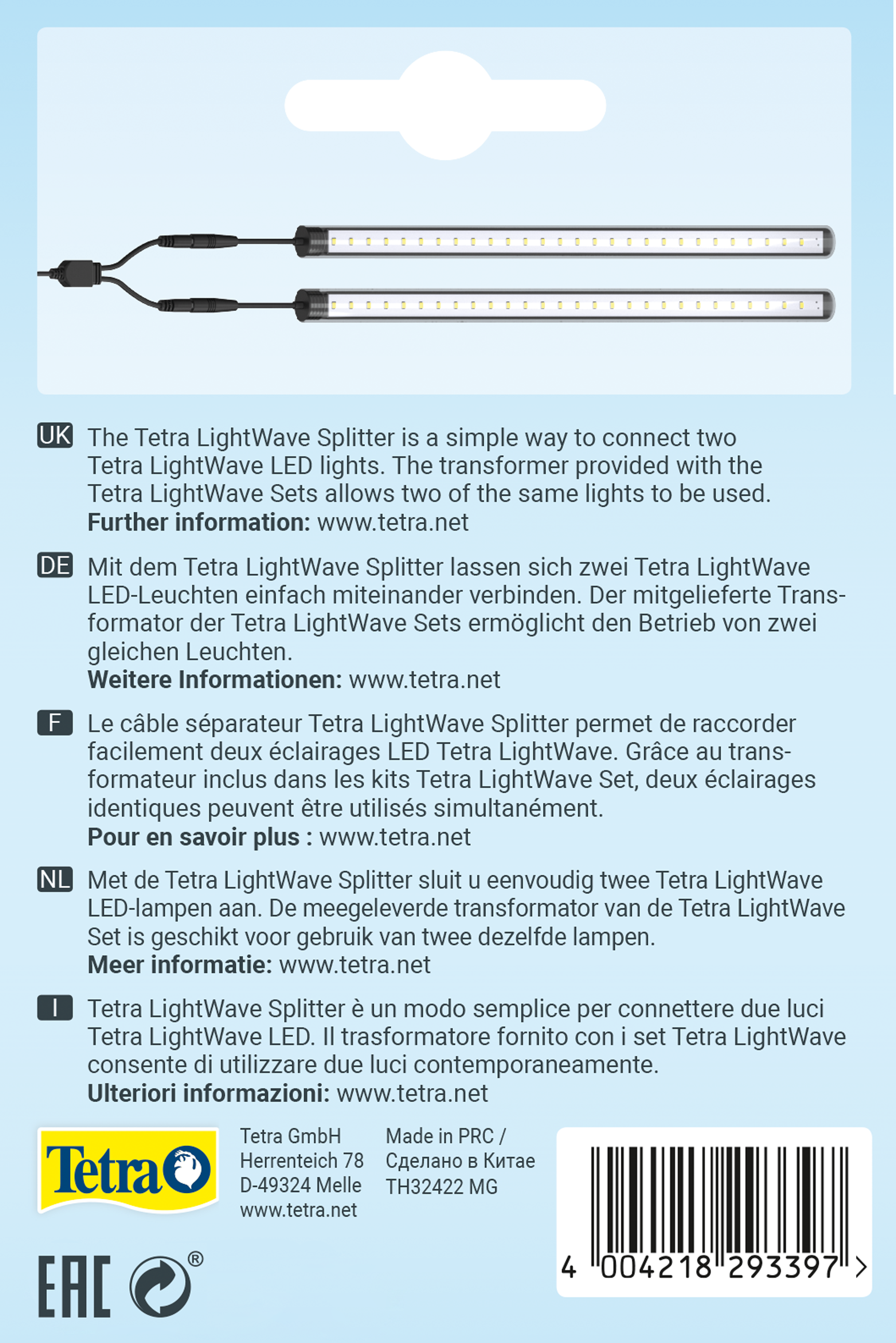Tetra LightWave Splitter
The Tetra LightWave Splitter is a simple way to connect two Tetra LightWave LED lights. The power supply provided with the Tetra LightWave Complete Set allows two of the same lights to be used.
Do you have a question about the product?
Do you have a question?
Your inquiry has been sent.
Available sizes
1 pc
Buy online
Find a nearby store
Detail
Splitter connects two Tetra LightWave lights
Power supply provided with the Tetra LightWave Complete Set allows two of the same lights to be used
More information
Switching to modern LED technology has never been easier – thanks to Tetra LightWave. The Tetra LightWave Splitter is a simple way to connect two Tetra LightWave LED lights. The power supply provided with the Tetra LightWave Complete Set allows two of the same lights to be used. This also enables optimal illumination of deep aquariums. The high lumen value of the LEDs brings brilliant, near-natural daylight to your aquarium. Your aquarium plants will particularly benefit from optimised lighting as the light spectrum encourages them to form chlorophyll. In this way, Tetra LightWave promotes plant growth and an intact aquarium ecosystem. In contrast to halogen bulbs or fluorescent tubes, they consume little electricity, are energy efficient and last for 30,000 hours. Therefore, the LED bulbs need replacing much less often, which makes them really sustainable and environmentally friendly. Unlike old fluorescent tubes, for example, they do not contain any mercury, which could pose a risk to the aquarium and its inhabitants in the event of a defect. The adjustable extension arms can make the LED light up to 6 cm longer on each side so that you can adjust it to the specific size of your aquarium.
Read more
FAQs
Which LightWave size should be used for which tank size?
The LightWave size should be selected on the basis of the tank size and how the light has to be attached. We recommend selecting the largest possible light unit under consideration of these factors. Making the switch to economical yet powerful LED lights is generally always advisable.
For what aquarium size will a single LightWave light suffice and from what tank size are two lights recommended?
To optimally illuminate aquariums, we recommend using two lights from a tank size of 100 litres. The set automatically comes with a transformer for running two lights in parallel.
Is the LightWave light also suitable for plant growth? What needs to be considered?
The colour temperature of the LightWave lights enables optimum plant growth. The chlorophyll in the plants uses the violet-blue light waves for photosynthesis. This produces oxygen and supports the natural biorhythm of the fish.
Is the LightWave also suitable for aquariums with a curved front pane?
Yes. The suction-cup adapter can be used to conveniently attach the LightWave light to the straight side of the aquarium.
What is the voltage of the power supply?
A list of power supply voltages can be found here:
| LightWave 270 | 12V1A |
| LightWave 430 | 12V/3A |
| LightWave 520 | 12V/3A |
| LightWave 720 | 12V/4A |
| LightWave 830 | 20V/3A |
| LightWave 990 | 20V/3A |
| LightWave 1140 | 20V4A |
For how long should the daytime lighting be switched on? Are the LEDs dimmable?
Tetra’s LightWave aquarium lighting impresses in many respects, for example through the timer and dimmer functions as well as the sunrise/sunset, cloudy sky and even thunder and lightning effect functions. These optimally imitate the corresponding weather conditions so as to simulate a natural environment where the aquarium’s inhabitants can feel particularly happy.
We recommend having the light on for 12 hours per day to create a regular and natural day/night rhythm.
Can the LightWave light be too hot for smaller or shallower aquariums?
The light’s glass cylinder ensures that some of the heat is already controlled when emitted. As a result, the light’s temperature does not exceed 60°C. This also supports the LED’s durability.
Despite the above, you must ensure that the glass cylinder does not rest on other materials. The adapters supplied are designed to always ensure sufficient space between the light and other materials.
What colour spectrum does the LightWave aquarium light offer?
The LightWave is characterised by beautiful colour rendering. The entire aquarium is brightly illuminated. The light's spectrum simulates natural daylight and therefore also enables photosynthesis to occur.
How durable are the LEDs in the LightWave aquarium lights?
The Tetra LightWave light comes with a two-year guarantee. The LEDs have a service life of approx. 30,000 operating hours.
Why should I switch to LED lighting?
As the service life of LED lights is far longer than that of fluorescent bulbs, switching to LED lighting saves you money. There is also no need for regular retrofitting. Unlike energy-saving bulbs, LED bulbs do not contain any toxic mercury and are therefore more environmentally friendly.
With fluorescent bulbs, what is known as spectral shift occurs over time. This means that the light spectrum shifts, which can lead to it no longer being possible to use certain areas that are important for chlorophyll production. This shift does not occur with LED technology. The spectrum remains the same throughout the service life and ensures optimum lighting for plant growth.
Tetra LightWave Splitter
The Tetra LightWave Splitter is a simple way to connect two Tetra LightWave LED lights. The power supply provided with the Tetra LightWave Complete Set allows two of the same lights to be used.
Available sizes
1 pc
Buy Online
Detail
Splitter connects two Tetra LightWave lights
Power supply provided with the Tetra LightWave Complete Set allows two of the same lights to be used
More information
Switching to modern LED technology has never been easier – thanks to Tetra LightWave. The Tetra LightWave Splitter is a simple way to connect two Tetra LightWave LED lights. The power supply provided with the Tetra LightWave Complete Set allows two of the same lights to be used. This also enables optimal illumination of deep aquariums. The high lumen value of the LEDs brings brilliant, near-natural daylight to your aquarium. Your aquarium plants will particularly benefit from optimised lighting as the light spectrum encourages them to form chlorophyll. In this way, Tetra LightWave promotes plant growth and an intact aquarium ecosystem. In contrast to halogen bulbs or fluorescent tubes, they consume little electricity, are energy efficient and last for 30,000 hours. Therefore, the LED bulbs need replacing much less often, which makes them really sustainable and environmentally friendly. Unlike old fluorescent tubes, for example, they do not contain any mercury, which could pose a risk to the aquarium and its inhabitants in the event of a defect. The adjustable extension arms can make the LED light up to 6 cm longer on each side so that you can adjust it to the specific size of your aquarium.
Read more
FAQs
Which LightWave size should be used for which tank size?
The LightWave size should be selected on the basis of the tank size and how the light has to be attached. We recommend selecting the largest possible light unit under consideration of these factors. Making the switch to economical yet powerful LED lights is generally always advisable.
For what aquarium size will a single LightWave light suffice and from what tank size are two lights recommended?
To optimally illuminate aquariums, we recommend using two lights from a tank size of 100 litres. The set automatically comes with a transformer for running two lights in parallel.
Is the LightWave light also suitable for plant growth? What needs to be considered?
The colour temperature of the LightWave lights enables optimum plant growth. The chlorophyll in the plants uses the violet-blue light waves for photosynthesis. This produces oxygen and supports the natural biorhythm of the fish.
Is the LightWave also suitable for aquariums with a curved front pane?
Yes. The suction-cup adapter can be used to conveniently attach the LightWave light to the straight side of the aquarium.
What is the voltage of the power supply?
A list of power supply voltages can be found here:
| LightWave 270 | 12V1A |
| LightWave 430 | 12V/3A |
| LightWave 520 | 12V/3A |
| LightWave 720 | 12V/4A |
| LightWave 830 | 20V/3A |
| LightWave 990 | 20V/3A |
| LightWave 1140 | 20V4A |
For how long should the daytime lighting be switched on? Are the LEDs dimmable?
Tetra’s LightWave aquarium lighting impresses in many respects, for example through the timer and dimmer functions as well as the sunrise/sunset, cloudy sky and even thunder and lightning effect functions. These optimally imitate the corresponding weather conditions so as to simulate a natural environment where the aquarium’s inhabitants can feel particularly happy.
We recommend having the light on for 12 hours per day to create a regular and natural day/night rhythm.
Can the LightWave light be too hot for smaller or shallower aquariums?
The light’s glass cylinder ensures that some of the heat is already controlled when emitted. As a result, the light’s temperature does not exceed 60°C. This also supports the LED’s durability.
Despite the above, you must ensure that the glass cylinder does not rest on other materials. The adapters supplied are designed to always ensure sufficient space between the light and other materials.
What colour spectrum does the LightWave aquarium light offer?
The LightWave is characterised by beautiful colour rendering. The entire aquarium is brightly illuminated. The light's spectrum simulates natural daylight and therefore also enables photosynthesis to occur.
How durable are the LEDs in the LightWave aquarium lights?
The Tetra LightWave light comes with a two-year guarantee. The LEDs have a service life of approx. 30,000 operating hours.
Why should I switch to LED lighting?
As the service life of LED lights is far longer than that of fluorescent bulbs, switching to LED lighting saves you money. There is also no need for regular retrofitting. Unlike energy-saving bulbs, LED bulbs do not contain any toxic mercury and are therefore more environmentally friendly.
With fluorescent bulbs, what is known as spectral shift occurs over time. This means that the light spectrum shifts, which can lead to it no longer being possible to use certain areas that are important for chlorophyll production. This shift does not occur with LED technology. The spectrum remains the same throughout the service life and ensures optimum lighting for plant growth.
Do you have a question about the product?
Do you have a question about the product?
Do you have a question?
Your inquiry has been sent.


